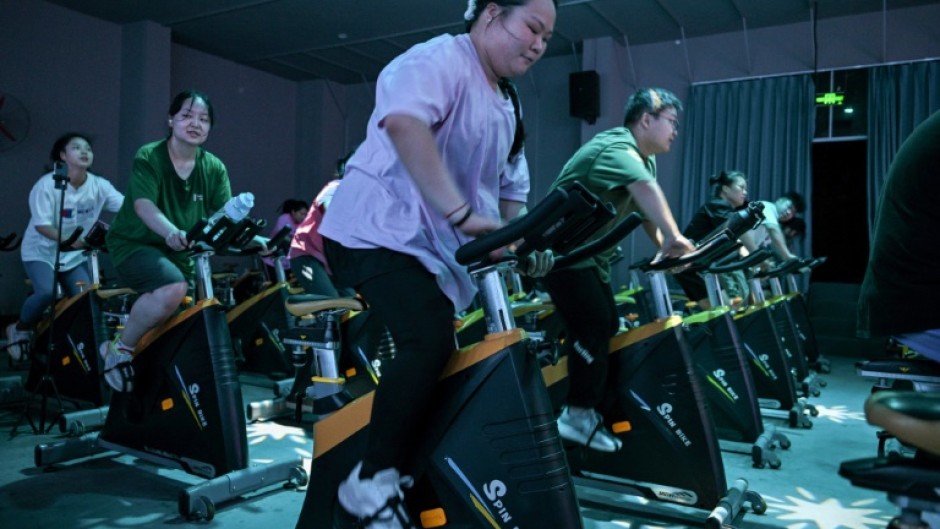BEIJING - Boasting strict daily exercise regimens, mandatory trips to the scale and rigid surveillance to guard against snacking, weight-loss camps have popped up across China as it grapples with a growing obesity crisis.
They have also sparked controversy -- last year an influencer died while attending a facility in northern China as part of efforts to shed more than 100 kilograms, local media said.
Among the activities at a camp in Chengdu are long brisk walks -- with instructors keeping an eye on participants tempted to stop for snacks at roadside carts.
The country has ranked obesity the sixth leading risk factor for death and disability and ramped up efforts to tackle the issue.
Beijing's National Health Commission has said that "the prevalence of overweight and obese people in China has continued to rise".
That has sparked a fitness craze -- exemplified by "YOLO", a film about an overweight woman who takes up boxing to regain her self-esteem, that topped China's box office during Lunar New Year this year.

Jia Ling, who directed the film and played the leading role, reportedly lost over 50 kilograms during filming, with her physical transformation going viral.
This upward trend may be linked to increased disposable income and higher spending on food, often high in calories and rich in oil, said Charles Poon, medical director at Raffles Hospital Beijing.
Additionally, many people are facing more demanding work environments.
In June, China launched a three-year campaign to address obesity, recommending actions such as reducing foods high in salt, sugar and fat in school canteens and encouraging employers to support staff fitness.
The country will also ensure that primary and middle school students engage in at least two hours of physical activities a day.
For camps like the one in Chengdu, experts warn of the risks.
Pan Wang, an associate professor in Chinese and Asian studies at the University of New South Wales in Australia, said the government should monitor and restrict workouts and diets which could be potentially dangerous.
"The beauty industry is booming... (and) the concept of 'thinness' has translated into a kind of social capital," Wang said.
"Businesses like weight-loss camps can profit from it."

